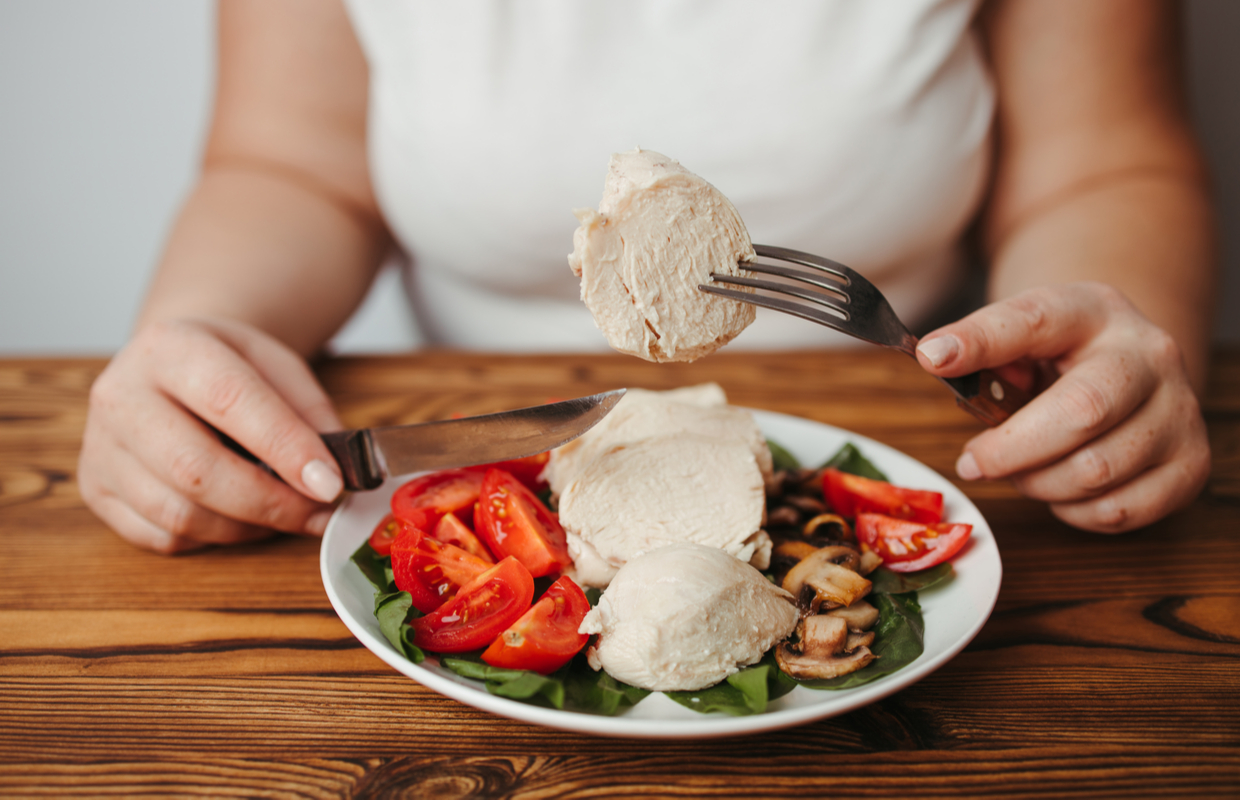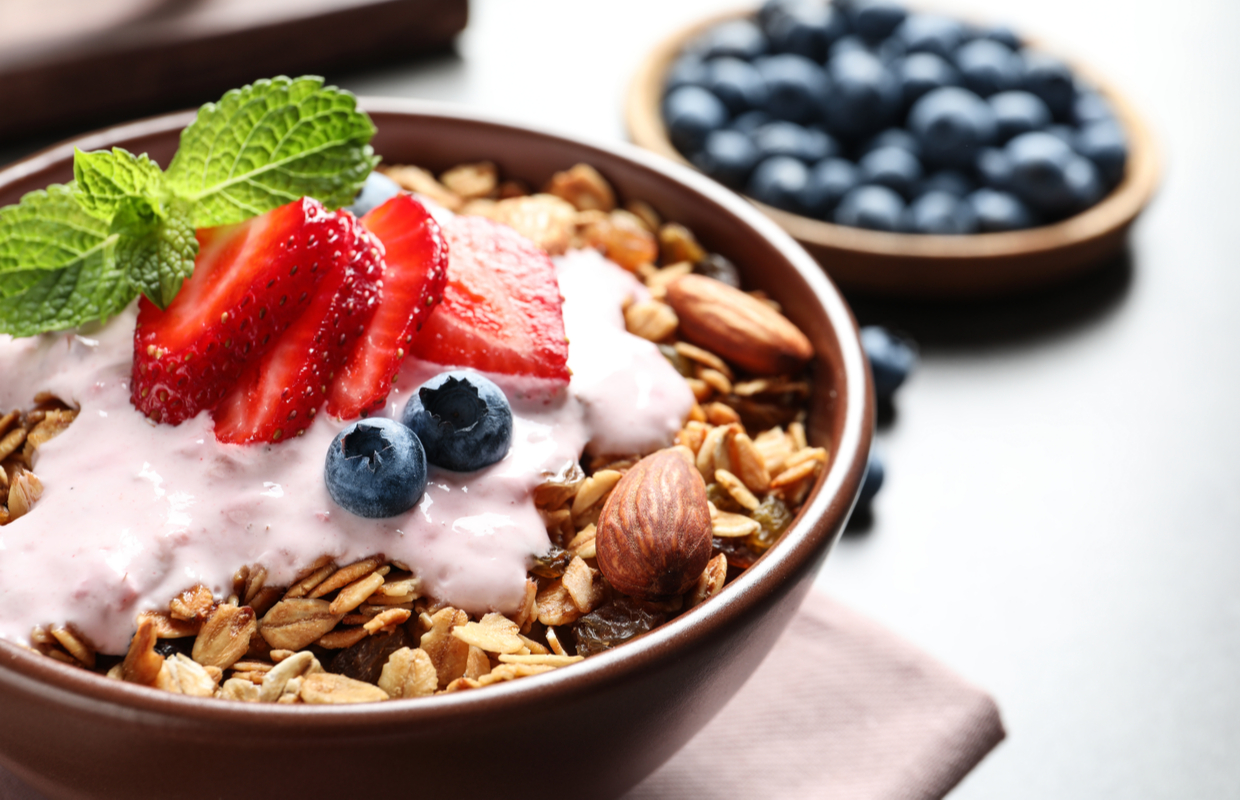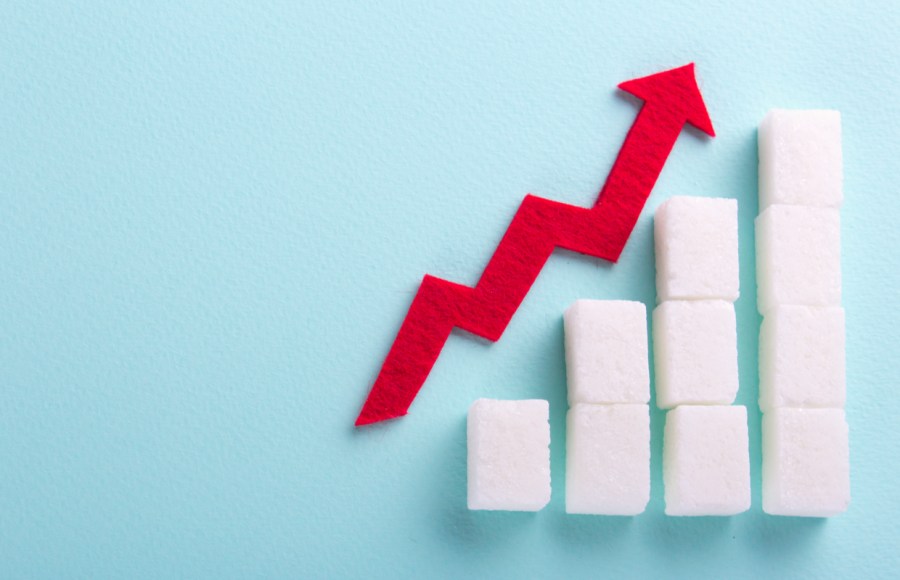Unstable blood sugar can leave you feeling weak and irritable. Nutritionist Karen Newby shares some nutrition tips and the best foods to help you balance your blood sugar levels naturally…
Do you get shaky, clammy or feel faint if you’ve not eaten for a few hours? Perhaps you become irritable and angry if you go too long between eating? If so, these are all common signs of low blood sugar.
How do blood sugar levels work?
When you eat something sugary, including refined carbohydrates such as cakes, biscuits, bread, pasta or rice, it leads to a surge in your blood sugar. Your body responds by producing high levels of insulin, a hormone responsible for getting the sugar (glucose) out of your blood and into your fat or muscle cells.
But what often happens is that high spikes of blood sugar are often followed by steep lows, which is when you get that ‘hangry’ feeling, meaning being angry and hungry. Your brain keeps blood sugar tightly controlled – it doesn’t like it too high or too low, and if it falls too low, your body releases the stress hormone cortisol to bring it back into balance.
Too many blood-sugar lows lead to irritability, anxiety and low mood. They also drive you to eat less healthy foods as your brain is in stress mode, driving you to grab something sugary super quick to bring your blood sugar back up. So, you are on a blood-sugar ‘roller coaster’ that is stressing your body if you continually eat sugary, high-carb processed foods.

3 nutrition tips to balance blood sugar levels naturally
1. Fill up on protein
One of the best ways to swerve blood-sugar spikes is to load your plate with protein. Eating protein is akin to putting coal onto a fire in terms of energy – the flames don’t burn as brightly as they would with wood or petrol but they kick off more heat and last for longer. This provides a slow, drip feed of energy, and also increases heat in your body, which helps with feelings of satiety.
Eating sugar, by way of contrast, is like putting petrol onto a fire – the flames burn super bright and kick out loads of heat, but they don’t last as long and the flames diminish much faster after the initial burst, which is like what happens to your blood sugar when it quickly dips.
2. Swap coffee for hot water and lemon
On waking, have a cup of hot water and lemon instead of tea or coffee. The lemon juice will help stimulate your digestive juices. Also, caffeine affects your blood sugar as it stimulates the release of cortisol and adrenaline – aka puts you into stress mode – which releases glucose from your liver and increases your blood sugar. If you do want a cuppa, go for fresh mint tea or non-caffeinated herbal teas.

3. Add healthy fats and protein to your breakfast
Eating protein at breakfast will massively help with your afternoon energy. High-protein foods include eggs, lean meat, oily fish, white fish, organic yoghurt, pulses, tofu, nuts, seeds and quinoa. Some breakfast cereals also now have lower levels of sugar, which you could top with coconut or almond yoghurt.
To make your porridge less carb-heavy and increase the healthy fats and protein, try adding linseeds, chia seeds and a handful of nuts such as almonds and walnuts. Add cinnamon too (this helps stabilise blood sugar) and finish with a dollop of full-fat organic yoghurt.
Other great breakfast meals are eggs any which way – shakshuka, kedgeree, scrambled, etc. You can also add an avocado for healthy fats. If you’re peckish later in the day, have a small handful of trail mix or falafel, or chopped cucumber or apple dipped in hummus or spread with nut butter. Almond and coconut milk yoghurts are also good snacks.
Find out more about Karen Newby and her work helping perimenopausal women at karennewby.com.
Related: How to balance your blood sugar with essential oils
Words: Karen Newby | Images: Shutterstock







